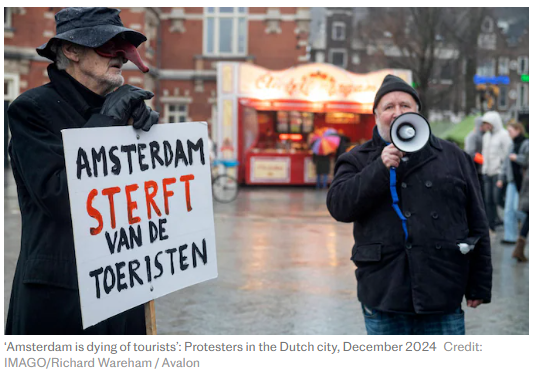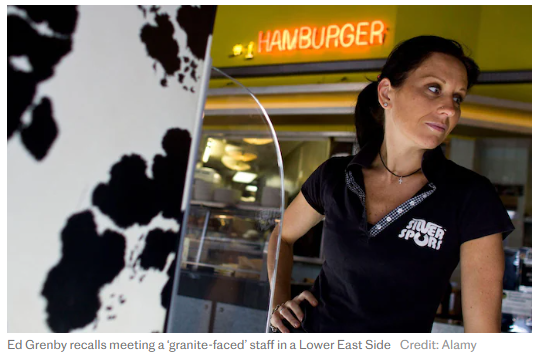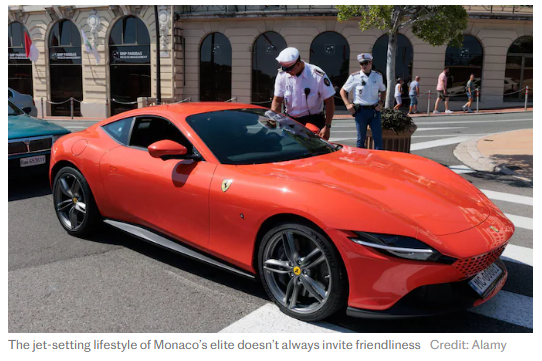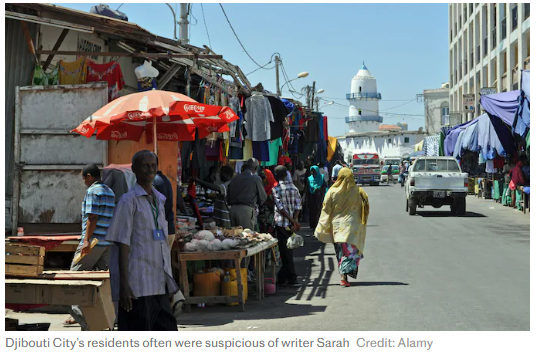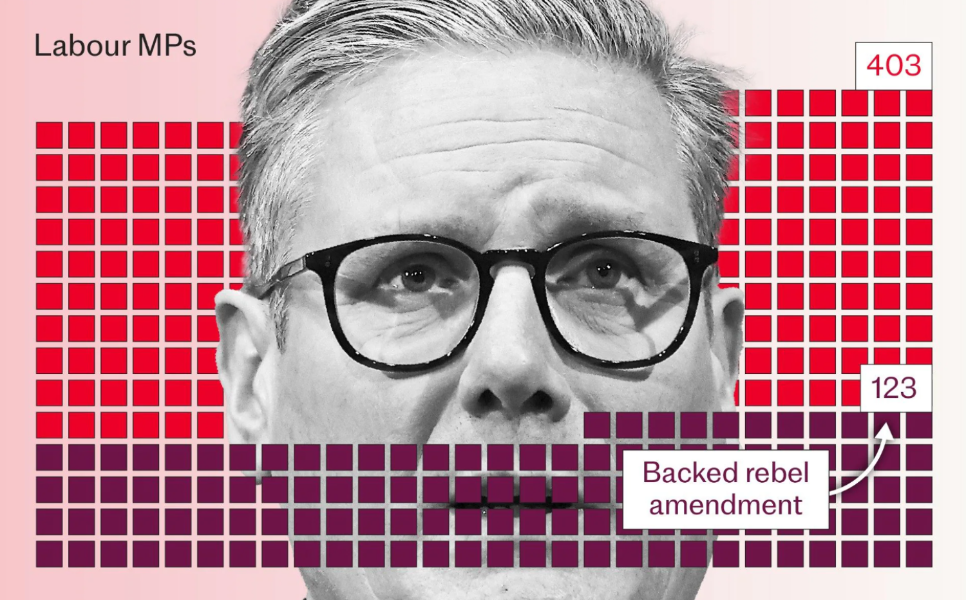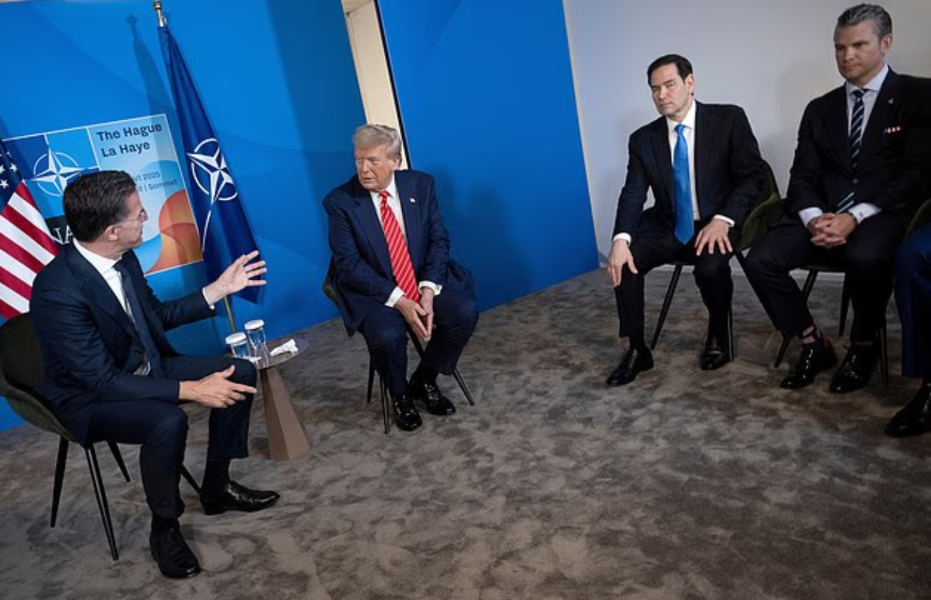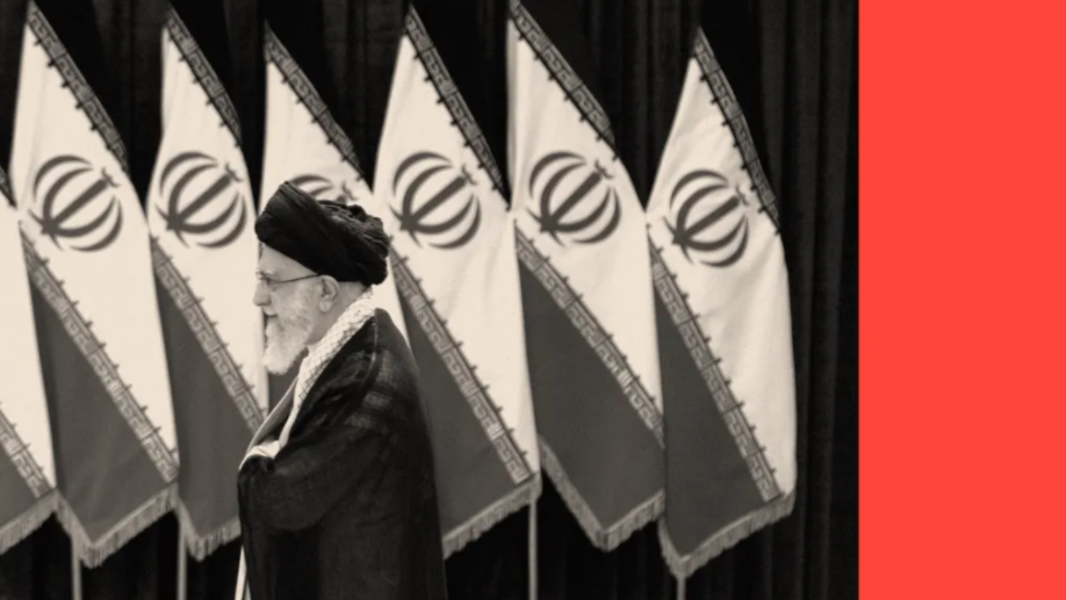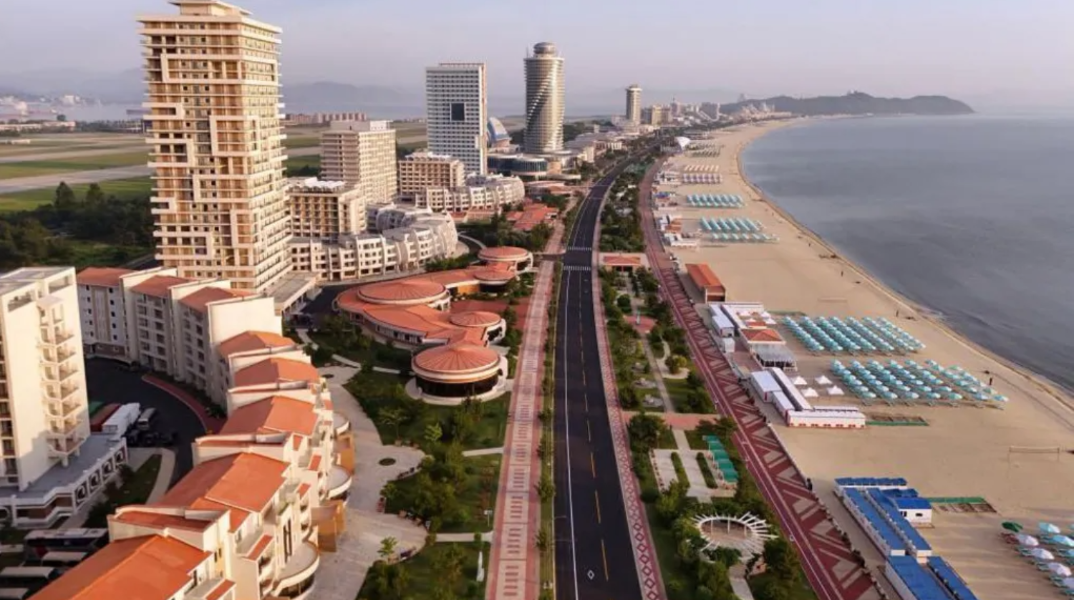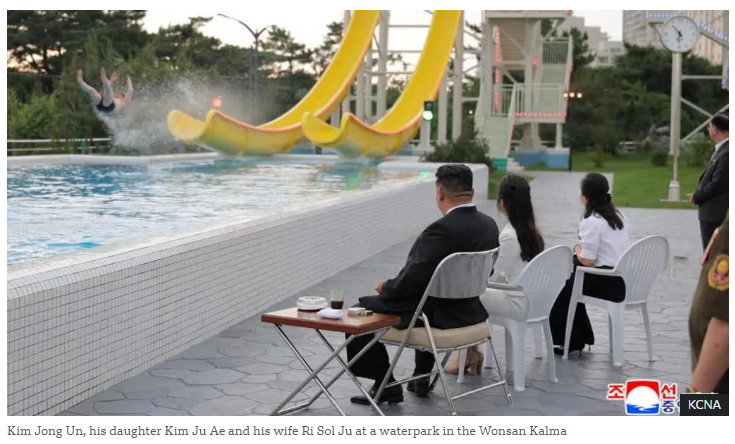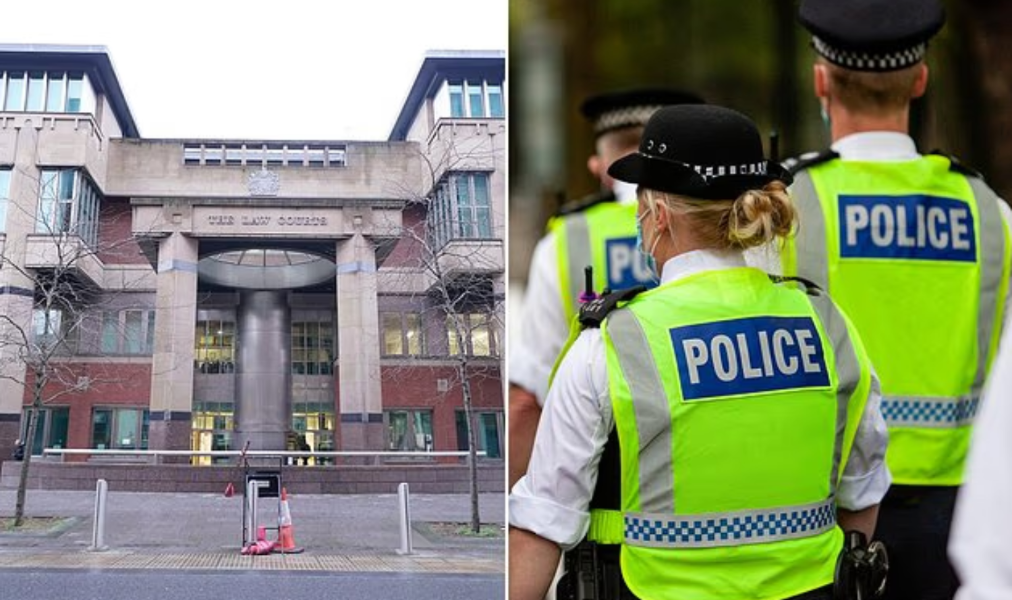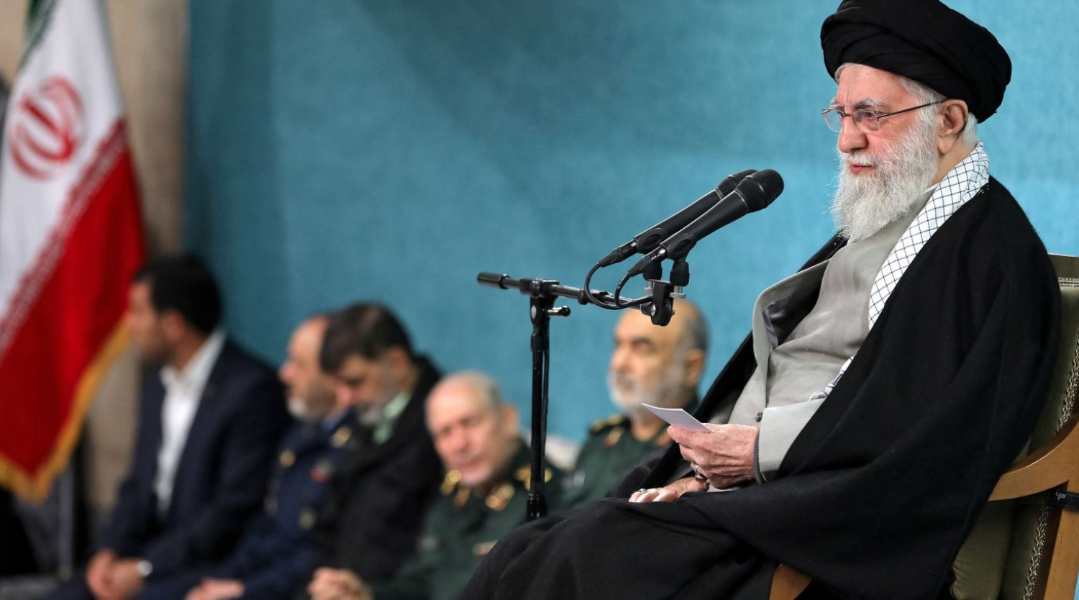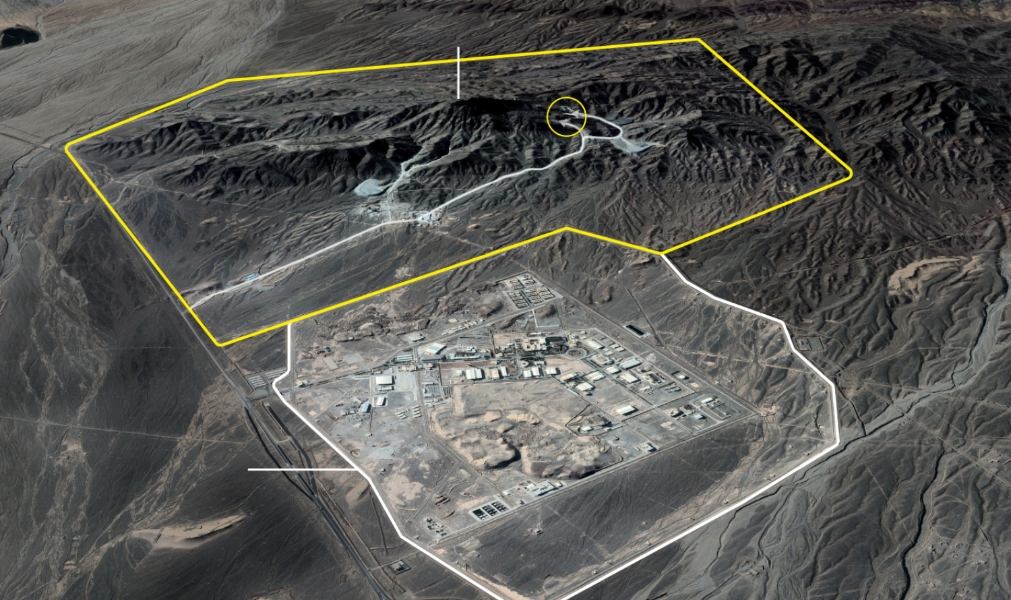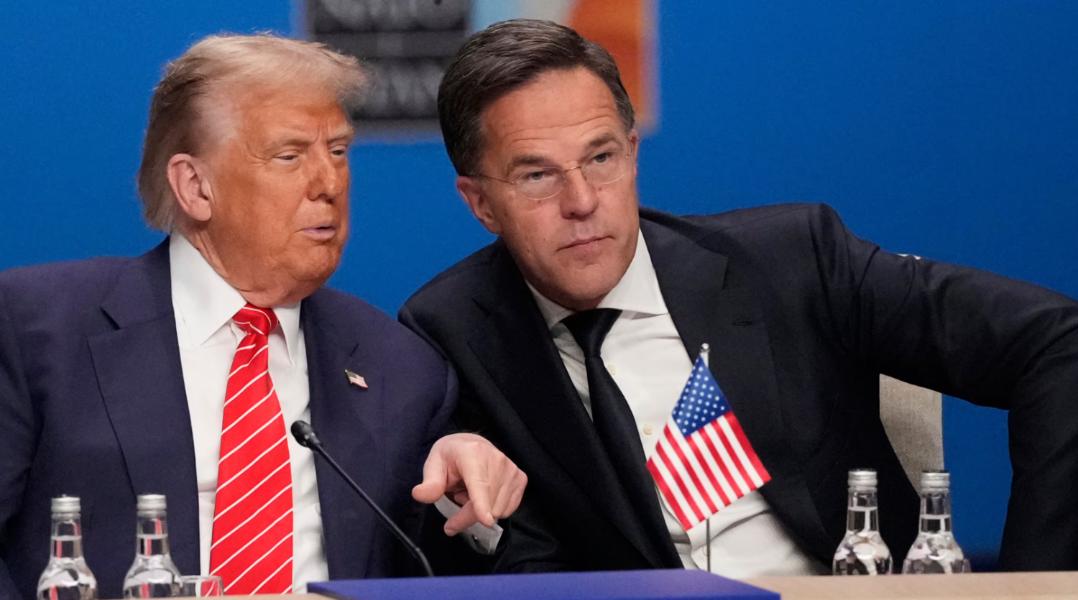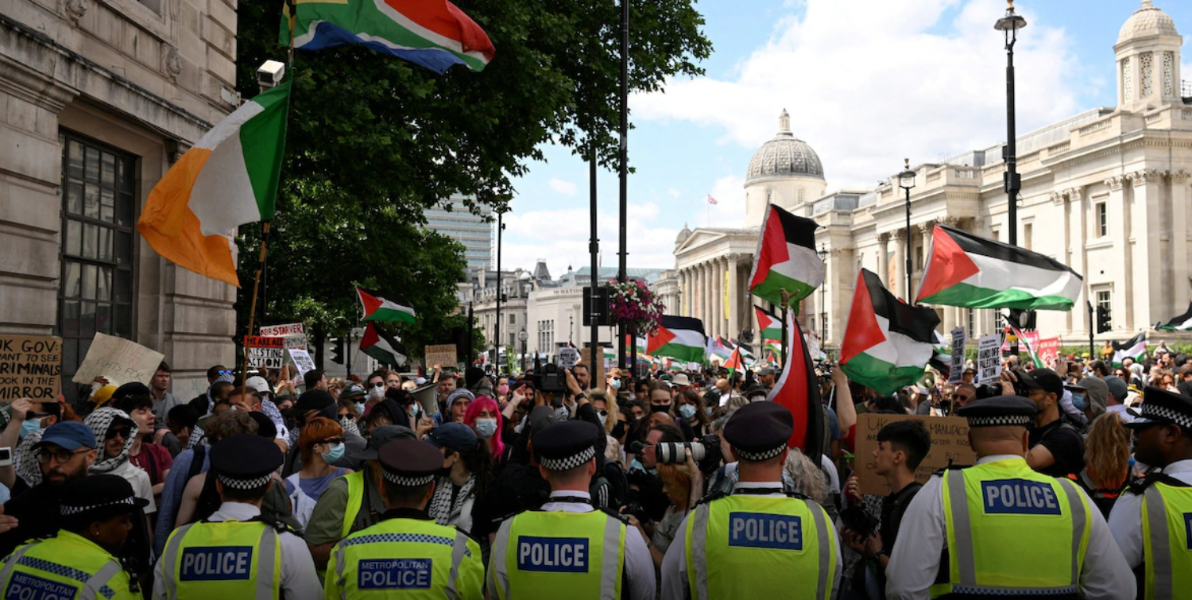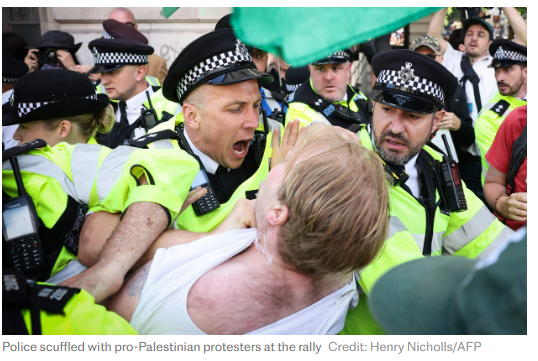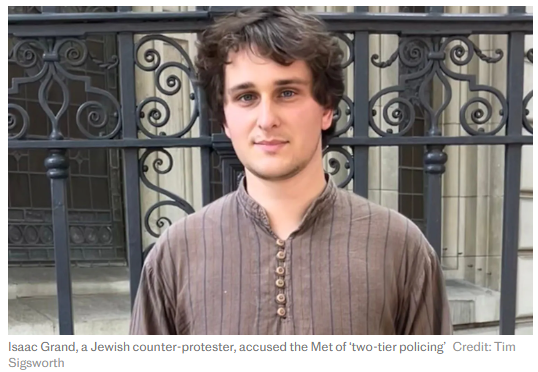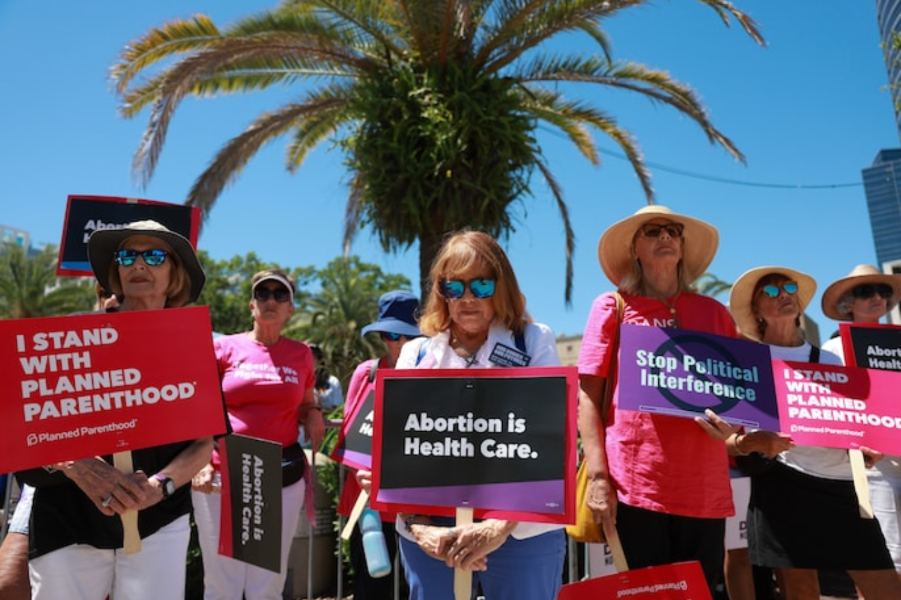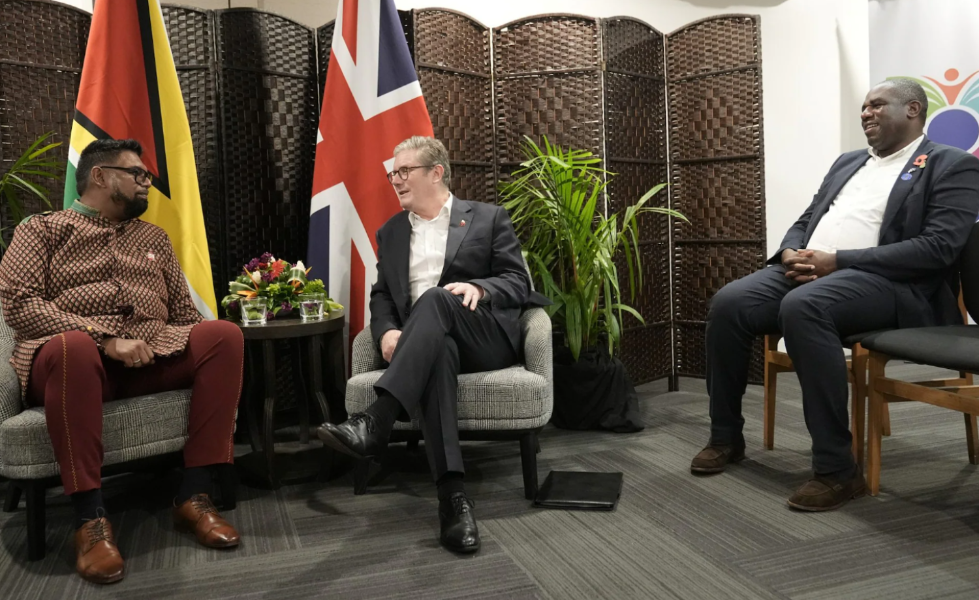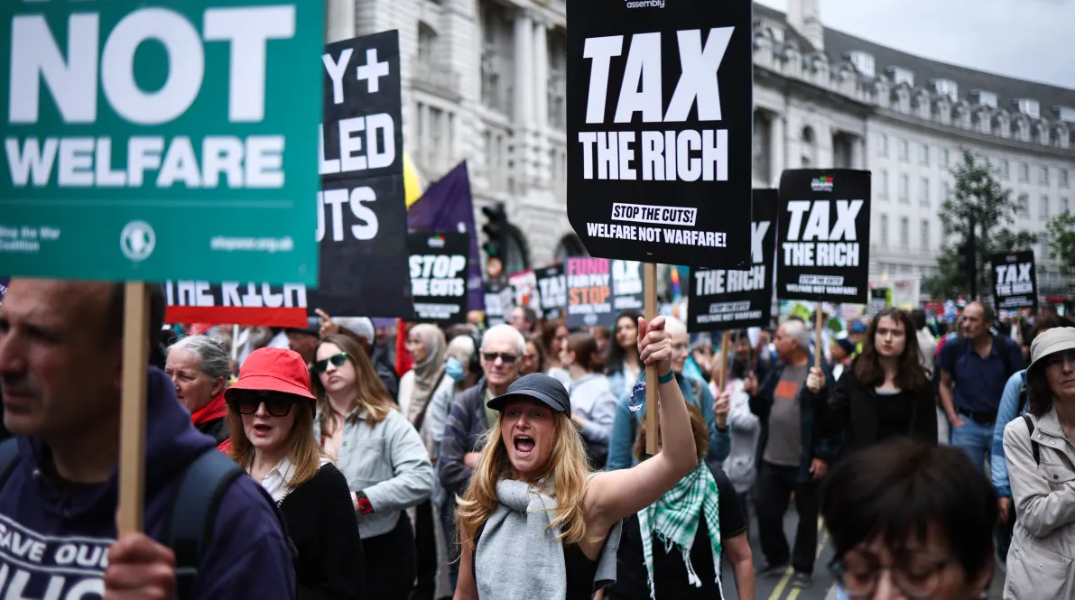-
Posts
10,707 -
Joined
-
Last visited
Content Type
Events
Forums
Downloads
Quizzes
Gallery
Blogs
Everything posted by Social Media
-

UK Fury as Met Chief Likens Jewish Protesters to Rowdy Football Fans
Social Media replied to Social Media's topic in World News
Zionist trolling post removed @Jeff the Chef -
Rotten Greetings: The World's Most Unwelcoming Cities According to Seasoned Travellers Not every city welcomes you with open arms and warm smiles. In fact, for some intrepid travel writers, a journey abroad has felt more like running a gauntlet of indifference, contempt, or outright hostility. Ten Telegraph Travel contributors recently shared their personal experiences in the cities they found the least friendly — where the vibe was more “go away” than “good day.” Annabel Fenwick Elliott recalls the cold sting of Berlin’s infamous club culture and frosty social norms. “If you aren’t left wing and unapproachable, you aren’t cool,” she writes. The city’s energy left her feeling flat, her most memorable moment being slapped with a €1,500 fine for not wearing a mask at a deserted train station during the waning days of the pandemic. “I didn’t pay it, and I won’t be going back,” she concludes. In Riga, Gavin Haines found himself plunged into a sub-zero atmosphere that went far beyond the weather. “If you think Parisian waiters are surly, go to Riga – they take it to another level,” he says. From eye-rolling taxi drivers to sigh-laden service, he felt like every interaction was steeped in Soviet-era hangover grump. Chris Leadbeater’s 2017 trip to Moscow confirmed long-held stereotypes. Even when using the local “spasiba,” he was met with blank stares or grunts. “Moscow did not feel particularly welcoming to this particular Western tourist,” he said, contrasting it with his more enjoyable experiences in St Petersburg. Geneva, surrounded by majestic mountains, proved equally chilly for Anna Richards. Her attempt to pay a brunch bill ended in a financial sting, and a brief train misstep led to accusations of fare dodging. “The rest of Switzerland is as warm and inviting as a vat of fondue, but I’ve learnt to skip this city,” she wrote. Amsterdam’s frosty reception was more subtle, but no less alienating. Despite an invite to a boat party, one writer felt practically invisible. “I recall being more or less ignored for the entire day,” she said. The Dutch were described as “busy, direct, and a little slower to warm up” than other Europeans. Then there’s New Orleans, a city full of contradictions. One writer describes it as “hostile,” despite being one of her favorites. From aggressive tipping culture to urban decay and crime, she wrote, “New Orleans parties like it’s possessed, and perhaps it is.” New York, never one to sugar-coat things, served up a quintessentially abrasive experience. One contributor was schooled by a pizza server who barked, “You gotta loiyn to tawk ENGLISH!” and refused to serve him until he Americanized his accent. “Welcome to New York. Now screw you!” summed up the experience. In Quito, Heidi Fuller-Love was met with friendliness from locals — at first. But then came the infamous “bird poop trick” robbery attempt, a knife-point mugging, and random verbal abuse. “S— on, shouted at and almost stabbed: that seems like the definition of unfriendly to me,” she said. Monaco’s snobbery wore thin for one writer who attended a climate-friendly motorsport event. “Monaco is where billionaires are courted and everyone else is merely tolerated,” he concluded after enduring sneers from doormen and grumbling from underpaid French waiters. Finally, Djibouti City provided the least welcome of all. One writer found himself accused of being a CIA agent while photographing a cat in the market. “The real low point came when I had an onion lobbed at my head,” he said. “I took solace in the fact it wasn’t watermelon season.” From icy glares to flying vegetables, these accounts offer an eye-opening reminder: not all travel experiences are warm and fuzzy. Sometimes, the journey comes with a scowl — and maybe a side of onion. Adapted by ASEAN Now from The Telegraph 2025-06-27
-
The Dangerous Delusions of Western Pro-Iran Protesters There’s a clock in Tehran that literally counts down to Israel’s destruction. And now in Brighton, some British protesters were carrying posters of Iran’s Supreme Leader, Ali Khamenei, apparently blind to the implications. Among the loudest voices in this troubling chorus are online activists rallying under hashtags like #IStandWithIran. But where were these keyboard revolutionaries when Iranians themselves were fighting for freedom? Were they standing with Iran during the 2009 Green Movement, when millions protested a fraudulent election, only to be met with brutal crackdowns and skyrocketing executions, many of them targeting juveniles and LGBTQ+ people? Did they post in solidarity in 2019 during the deadly fuel protests? Or in 2022, after the morality police killed Mahsa Amini for the crime of letting her hair show in public, sparking a wave of protests under the rallying cry “Woman, Life, Freedom”? Many brave Iranians have died in pursuit of basic human dignity. The diaspora — educated, articulate, and painfully aware of the regime’s cruelty — will tell you exactly what kind of government rules Iran. But ignorance, as always, remains bliss for some. Take India Willoughby, a British trans rights activist who wrote on X: “I could live in Iran. Better trans rights than the UK and US.” She went further, aligning with the Iranian regime by posting “#TeamIran,” a statement that caught the attention of JK Rowling, who responded acidly: “India, a fan of a woman-hating, gay-hating, authoritarian regime? Colour me astonished.” Rowling even offered to pay her fare to Tehran. Willoughby — born Jonathan and known for her appearances on “Loose Women” and “Celebrity Big Brother” — insists: “I’m 100 per cent a biological woman and female. The fact the GC [gender-critical] movement can’t handle this simple fact isn’t my problem. Jealous.” Her sense of reality is, at best, elastic. She may not know — or chooses not to know — that while Iran performs more gender reassignment surgeries than any country except Thailand, it is not out of compassion or acceptance. Trans people are treated as mentally ill, their identities deemed “curable” only through surgical correction. Homosexuality is still punishable by death, often through public hangings. Many trans people, once operated on, are shunned, marginalized, and driven into sex work. And gender nonconformity? Completely outlawed. In 2015, Iran even cracked down on tattoos and “homosexual hairstyles.” This is a regime that censors the internet, jails dissidents, and exports chaos through proxies like Hezbollah and Hamas. It is a theocratic dictatorship that suppresses its own people while manipulating foreign sympathizers into becoming mouthpieces for its genocidal goals. What’s most galling is that those who parrot Iranian propaganda while enjoying the freedoms of the West are committing a form of ideological colonialism. They export their moral relativism while importing a regime’s brutality — all while luxuriating in the rights they take for granted. To claim moral superiority while waving posters of Khamenei is not radical — it’s repulsive. These protesters wouldn’t survive a day under the regime they cheer for. Their hatred is matched only by their ignorance. And that ignorance is deadly. Adapted by ASEAN Now from The Telegraph 2025-06-27
-
Starmer Faces Major Rebellion Over Welfare Cuts as Labour MPs Dig In Sir Keir Starmer is under mounting pressure to dilute his flagship welfare reform plans in a bid to stave off a major rebellion within the Labour Party, which could result in his first defeat in the House of Commons since becoming Prime Minister. According to sources close to No 10, Starmer is considering tabling a government amendment ahead of Tuesday’s vote to soften the proposals and prevent an embarrassing defeat. Options include bringing forward payments from a £1 billion fund aimed at helping people return to work or publishing long-demanded policy reviews before the legislation proceeds. However, it remains uncertain whether these measures will be enough to sway the 123 Labour MPs who have already signed a rebel amendment seeking to block the Bill entirely. With Labour’s commanding majority of 165, just 83 MPs would need to vote against the government for the rebellion to succeed. Among the more controversial aspects of the Bill is the proposed tightening of eligibility for the personal independence payment (PIP), reducing the Universal Credit health top-up for new claimants by 50% from 2026, and phasing out the work capability assessment—changes critics argue will significantly harm disabled people. At a press conference on Wednesday, Starmer did not rule out further concessions. Deputy Prime Minister Angela Rayner confirmed ongoing discussions, stating: “I haven’t changed my Labour values and we’re not expecting our benches to do anything that isn’t in check with them.” But Conservative leader Kemi Badenoch accused Starmer of buckling to internal pressure, saying: “This weak Government is discussing watering down their already ineffective welfare Bill. Instead of caving to his MPs, Starmer could pass his Bill by committing to cutting the welfare budget, getting people back to work and ruling out new taxes. That’d be real change.” Starmer returned early from the NATO summit in The Hague to face the deepening crisis. He plans to meet personally with dissenting Labour MPs in the coming days in an effort to win back support before the critical vote. But efforts to pressure MPs into falling in line have so far failed, with the number backing the amendment growing from 108 to 123 in recent days. Cabinet ministers are lobbying behind the scenes, and No 10 is reportedly weighing a rival amendment that would address several key concerns raised by the rebels—though moving too much money forward may clash with the Treasury’s projected £5 billion in annual savings from the cuts. Criticism has also been directed at the delay in publishing a government-commissioned review on employment among people with long-term health conditions, being conducted by Sir Charlie Mayfield, which is not expected until autumn. With the vote imminent, the lack of transparent data has become a flashpoint for MPs. Resistance to the Bill has spread beyond Parliament. Andy Burnham and Sadiq Khan, mayors of Greater Manchester and London respectively, have called for a pause to the reforms. Labour MPs are especially incensed by Downing Street’s suggestion that voting against the Bill is immoral. A No 10 spokesperson said: “We simply cannot go on ignoring a system that’s been failing on all accounts. That is not the moral or progressive thing to do.” In response, veteran MP Diane Abbott told The Telegraph: “It’s scandalous to accuse colleagues who are just trying to protect disabled people of being immoral. And it shows you they’re in a panic if they’re resorting to arguments that are so bankrupt.” Another Labour MP added: “It may be that there are questions of morality about certain aspects of the existing welfare system, but it’s what they’re doing that is immoral.” Other parties are also expected to back the rebel amendment. The Conservatives have set conditions Labour won’t meet, such as a commitment to avoid tax rises. The Liberal Democrats oppose the cuts outright, and Reform UK—though typically in favour of welfare reductions—will vote against Labour’s plan. Reform’s leader Nigel Farage said: “I won’t do anything to help a Government get out of trouble that is doing such damage to our nation.” Defending his approach, Starmer told reporters: “Many people predicted before the election that we couldn’t read the room... and we got a landslide victory. So I’m comfortable with reading the room and delivering the change the country needs.” He added: “Is it tough going? Are there plenty of people and noises off? Yes, of course, there always are, there always have been, there always will be.” Meanwhile, the Centre for Social Justice is expected to publish new research suggesting up to £9 billion could be saved by restricting mental health benefits to only the most severe cases. Badenoch will echo this in a speech, saying: “That is a serious amount of money we could save. But I know it won’t be easy. Under my leadership, the Conservative Party will not shy away from confronting the tough questions that need answering and, more importantly, providing the solutions.” Adapted by ASEAN Now from CNN 2025-06-27
-
Trump’s NATO Moment: 'Daddy' Remark Sparks Laughter and Global Headlines President Donald Trump stirred headlines once again during the NATO summit in The Hague after a moment of levity involving the word “daddy” prompted laughter, awkward clarifications, and some viral clips. The phrase, originally uttered by NATO Secretary General Mark Rutte during discussions on the Iran-Israel ceasefire, became the centerpiece of Trump’s closing press conference — and a moment Marco Rubio, now Secretary of State, couldn't keep a straight face through. During the press conference that followed, a reporter asked Trump how he felt about being referred to as “daddy.” Trump responded with characteristic bravado and humor. “No, he likes me, I think he likes me! If he doesn’t I’ll let you know and I’ll come back and I’ll hit him hard, OK?” he said, smiling. “He did it very affectionately though. ‘Daddy, you’re my daddy,’” he added with a grin. Standing beside him, Rubio — known for his typically restrained demeanor — burst into laughter, bowing his head and unable to hold it in. Trump went on to explain why he used coarse language in reference to the Iran-Israel situation. “You have to use strong language. Every once in a while you have to use a certain word,” he said, defending his use of profanity as necessary to emphasize the seriousness of global conflicts. The president previously mouthed the F-word at a 2016 campaign rally and used “bulls***” during a White House briefing earlier this year. Rutte, during a follow-up interview, attempted to walk back the “daddy” phrasing, clarifying that he hadn’t directly referred to Trump that way. “The ‘daddy’ thing, I didn’t call him daddy,” Rutte said. “What I said is that sometimes in Europe, I hear countries saying, ‘Hey Mark, will the U.S. stay with us?’ And I said that sounds a little bit like a small child asking his daddy, ‘Are you still staying with the family?’ So in that sense I was using ‘daddy,’ not that I was calling President Trump ‘daddy.’” Nevertheless, the label appeared to amuse the president, who was asked whether he viewed NATO allies “as sort of children.” Trump demurred slightly, but reinforced his long-held belief that European nations need to do more to support their own defense. “They’re obviously listening to you and they’re spending more,” the reporter noted. “But do you think they can actually defend Europe on their own, without you?” “I think they’ll need a little help at the beginning,” Trump replied. “And I think they’re going to remember this day. This is a big day for NATO, this is a very big day.” Indeed, earlier in the day, NATO members agreed to a key U.S.-backed initiative: a pledge to invest 5 percent of GDP on defense and security-related spending by 2035, a long-standing Trump priority. When asked again whether European countries could truly defend themselves, Trump directed the question back to Rutte: “Well, ask Mark. I think you have to ask Mark, OK?” The term “daddy” isn’t new to Trump’s political orbit. Former Fox News host Tucker Carlson had once nicknamed the president “daddy” as well, though he has recently criticized Trump, particularly after the U.S. bombed three Iranian nuclear sites. In the end, what began as a metaphor for transatlantic dependence turned into a surreal yet oddly characteristic moment for the Trump presidency — one part serious diplomacy, one part comedy of political manners, and every bit as unpredictable as the man at the podium. Adapted by ASEAN Now from Daily Mail 2025-06-27
-
Title: After the Bunker: Iran’s Supreme Leader Faces a Nation Forever Changed After nearly two weeks in hiding during a brutal war with Israel, Iran’s Supreme Leader Ayatollah Ali Khamenei is expected to re-emerge into a country dramatically altered. The 86-year-old cleric reportedly remained holed up in a secret bunker, fearing assassination attempts by Israel, and had little to no contact with senior government officials. The ceasefire, tenuously brokered by U.S. President Donald Trump and the Emir of Qatar, has brought a halt to the fighting for now—but the damage, both physical and political, is irreversible. Despite reports that President Trump warned Israel against targeting Khamenei, Israeli Prime Minister Benjamin Netanyahu did not offer similar assurances, leaving open the possibility of future action. If Khamenei steps out, he will confront the ruins of a once formidable regime—militarily battered, economically broken, and deeply mistrusted by its people. Iran’s military suffered significant losses as Israel took swift control of its airspace and conducted devastating strikes on Revolutionary Guard and army installations. Top commanders were killed in the opening days of the conflict. While the full extent of military damage remains unclear, the pattern of repeated bombings suggests a crippling degradation. Iran’s nuclear facilities—long the source of global sanctions and diplomatic tension—were also targeted, though details of the destruction are still emerging. Public sentiment is shifting. Many Iranians now view Khamenei’s decisions as catastrophic, blaming him for the ideological obsession with Israel’s destruction and the pursuit of nuclear weapons. Both strategies, they argue, have brought nothing but economic ruin and international isolation. “It is difficult to estimate how much longer the Iranian regime can survive under such significant strain, but this looks like the beginning of the end,” says Professor Lina Khatib, a visiting scholar at Harvard University. “Ali Khamenei is likely to become the Islamic Republic's last 'Supreme Leader' in the full sense of the word.” Dissent has surfaced even within Iran’s ruling elite. During the war, a semi-official news agency reported that some former regime figures appealed to religious scholars in Qom—traditionally separate from the ruling ayatollah’s apparatus—to intervene and push for a leadership transition. “There will be a reckoning,” said Professor Ali Ansari, founding director of the Institute of Iranian Studies at the University of St Andrews. “It's quite clear that there are huge disagreements within the leadership, and there's also huge unhappiness among ordinary people.” In the past two weeks, many Iranians displayed remarkable solidarity—supporting each other in the face of crisis. People opened their homes to the displaced, shopkeepers provided goods at reduced prices, and neighborhoods came together in mutual aid. But beneath this unity lies a painful duality: the urge to protect the homeland against external threats versus the long-standing resentment of a repressive regime. While many hope for regime change, they remain wary of one orchestrated by outside powers. Yet Iran’s parliament has voted to curtail cooperation with the International Atomic Energy Agency, possibly setting the stage for withdrawal from the Non-Proliferation Treaty—a move hardliners believe will finally allow Iran to build a nuclear bomb. Khamenei may see survival as a temporary victory. But at 86, frail and increasingly isolated, he must now consider the legacy of his rule. Whether he hands power to another cleric or a council of leaders, the Iran he left behind when he entered the bunker is not the Iran he will return to. And many within its borders may no longer welcome him back. Adapted by ASEAN Now from BBC 2025-06-27
-
After years of delays, North Korea is set to open its ambitious Wonsan Kalma beach resort to domestic tourists on July 1st, state media reported, in what leader Kim Jong Un hopes will mark the beginning of a new tourism-driven chapter for the isolated regime. The long-promised complex, spanning 4 kilometers of the country’s eastern coastline, has been six years in the making. Although it was originally slated for completion in 2019, the project faced construction setbacks and was further delayed by the pandemic. The extravagant resort, which Kim attended a ceremony to inaugurate on June 24, features hotels, restaurants, a water park, and shopping malls, according to the state-run Korean Central News Agency (KCNA). It is said to be able to accommodate up to 20,000 visitors, though none of these claims can be independently verified. Kim, joined at the event by his daughter Kim Ju Ae and wife Ri Sol Ju—who was making her first public appearance since a New Year’s Day event—framed the resort’s completion as a “great, auspicious event of the whole country” and a “prelude to the new era” in tourism. Kim has a personal connection to the area. He spent part of his youth in Wonsan, a town where many members of the North Korean elite have coastal villas. The resort is located on the site of a former missile testing ground—another example of Kim’s pattern of converting symbols of military strength into showcases of regime modernization. Still, some see it as little more than a glitzy distraction from the nation’s stark economic reality. North Korea remains one of the most heavily sanctioned countries in the world, largely due to its nuclear weapons program. With most of its resources dedicated to military projects and grand monuments glorifying the Kim dynasty, the average North Korean continues to live in deep poverty. Observers say the resort may be more of a financial lifeline than a genuine economic opening. “I was hoping this might signal a broader reopening to international tourism, but unfortunately, that doesn't seem to be the case for now,” said Rowan Beard, co-founder of Young Pioneer Tours, speaking to the BBC. The nation’s borders were sealed in early 2020 during the Covid-19 pandemic, and it wasn’t until mid-2023 that North Korea began loosening restrictions. Russian tourists were welcomed later that year, and in February 2024, small groups from countries like the UK, France, Germany, and Australia briefly crossed into the country from China. However, the regime suddenly halted those visits within weeks, offering no explanation. Tour operators remain skeptical about the resort’s broader appeal. “It is unlikely to be a major draw for most Western tourists,” Beard noted, adding that visitors to North Korea typically prioritize politically iconic sites like Pyongyang, the Demilitarized Zone (DMZ), and examples of socialist architecture and culture. Still, the unusual nature of a North Korean beach resort may offer some niche appeal. “It's intriguing to experience something as familiar as a beach resort that's been shaped within the unique cultural context of North Korea,” said Elliott Davies, director of Uri Tours. The Wonsan resort may serve as a symbolic gesture more than a genuine policy shift. But with Russian ambassador Alexander Matsegora and his embassy staff present at the opening, it’s clear which direction the regime is looking in terms of future guests. For now, Wonsan stands not just as a monument to Kim’s vision of tourism, but also as a reminder of how deeply North Korea’s fortunes remain tied to politics and propaganda. Adapted by ASEAN Now from BBC 2025-06-27
-
A woman said she was told that being raped “is what white girls were for” when she was attacked as a teenager in Rotherham, a jury has heard. The alleged victim was about 14 years old when she was raped by Sageer Hussain, who was about the same age as her, and two other men, Sheffield Crown Court heard on Wednesday. Andrew Bailey, prosecuting, said the girl, who is now in her late 30s, was raped by Mr Hussain, Kessur Ajaib and Mohammed Makhmood between 1999 and 2002. Describing one of the times the teenager was allegedly raped by Mr Hussain, Mr Bailey told the court she later said: “He said it was my own fault, I’d led him on. “I shouldn’t have walked around in what I was dressed in. I deserved it and that is what white girls were for.” Mr Bailey opened the trial of the three men by telling the jury: “The three defendants are all charged with serious sexual offending of a historical nature. “The offending all took place in the Rotherham area.” Mr Hussain is also charged with raping a second teenager. Victim ‘felt overpowered’ Mr Bailey said the first teenager was an “immature and vulnerable young girl” when she began going to a Rotherham youth club. He said this club was also frequented by young Asian men, some around her age but others who were older and would ask the girls if they wanted to drink. The older men also gave the girls cigarettes. The prosecutor said the 14-year-old girl met Mr Ajaib at the youth club and he began to sexually assault her after word got out that she had had consensual sex with a boy of her own age. Mr Bailey said Mr Ajaib saw this as a “green light” and the defendant said that “now she needed to come to try somebody real”. He told the jury how Mr Ajaib, who was about 18 at the time, allegedly raped her in an alleyway. “She told him she didn’t want to do it,” Mr Bailey said, adding: “He was a lot bigger than her and she felt overpowered. She realised she had no choice.” Mr Bailey said this girl was forced into sexual intercourse on “about five or six occasions”, as she was “in fear of being hurt if she didn’t do it”. ‘Did not dare tell anyone’ The prosecutor said Mr Makhmood, who was 18 or 19 at the time, raped the same girl in an old graveyard in Rotherham as she fought against him. Mr Bailey said that he called her a “slag” and a “dirty b----” before spitting at her and laughing. The prosecutor said her parents had split up and her mother was working four jobs, so she had to deal with it on her own. He said she “did not dare tell anyone”. Mr Bailey told the jury how Mr Hussain allegedly raped the second complainant in an alley in Rotherham town centre with another male and female present. All counts denied. Mr Ajaib, 43, denies two counts of rape and one of indecent assault, all relating to the first complainant. Mr Makhmood, 43, of Falding Street, Rotherham, denies one count of raping the first complainant. Mr Hussain, 39, formerly of Rotherham, denies two counts of raping the first complainant and one of raping the second complainant. Mr Bailey told the jury that Mr Makhmood told police that it was a case of “mistaken identity” and police had “got the wrong man”. Hussain told officers the “allegations were vindictive” and Mr Ajaib made no comment when he was interviewed. The trial continues. Adapted by ASEAN Now from The Mail 2025-06-27
-
Khamenei Dismisses U.S. Strikes, Declares 'Victory' in Nuclear Showdown Iran’s Supreme Leader Ayatollah Ali Khamenei has broken his silence following a volatile 12-day conflict with Israel and the United States, declaring that Washington’s attacks on Iranian nuclear facilities achieved “nothing significant” and claiming that Iran has emerged victorious. This contradicts with his own Foreign Ministry spokesman, Esmail Baghaei, who said US strikes on Sunday had caused significant damage to its nuclear facilities. In a video broadcast from a concealed location, Khamenei appeared for the first time since June 19, addressing the nation with defiance. “The Islamic Republic was victorious and, in retaliation, delivered a hand slap to America’s face,” he said, referencing a recent Iranian missile strike on a U.S. base in Qatar. That attack reportedly caused no casualties, but Khamenei framed it as symbolic retribution. The supreme leader dismissed U.S. President Donald Trump’s depiction of events, accusing him of “exaggerating” the effectiveness of the strikes on Iran’s nuclear infrastructure. “Trump needed to make a show,” Khamenei said. “But America has achieved no gains from this war.” Khamenei’s appearance followed a period of silence during which he reportedly remained in a bunker after Israel initiated airstrikes on June 13 targeting Iranian nuclear sites and senior military figures. On June 22, a major U.S. offensive involving bunker-buster bombs targeted the same facilities, escalating the conflict and prompting fears of broader regional war. Despite U.S. claims that the strikes were a tactical success, with CIA Director John Ratcliffe stating they had left Iran’s nuclear program “severely damaged” and set it back by years, Khamenei painted a very different picture. “America has been slapped in the face,” he said, reiterating his earlier pledge that Iran “will never surrender” to its enemies. Khamenei also mocked Israel’s role in the conflict, claiming that it was only when the U.S. chose to join the bombardment on June 21 that Tel Aviv was spared from being “utterly destroyed.” That suggestion, laden with taunting rhetoric, came despite the fact that numerous Iranian nuclear scientists and officials were killed during the fighting — targeted assassinations widely believed to have been carried out by Israel. “The aggressor enemy failed,” said Iran’s President Masoud Pezeshkian on Tuesday, echoing Khamenei’s framing of the war. He insisted that Tehran’s nuclear program had withstood the attacks. Meanwhile, Khamenei’s first post on X since the ceasefire simply read: “Congratulations on the victory,” underscoring the state’s narrative of resistance and triumph. Though the ceasefire was reportedly brokered with U.S. involvement following the June 22 strikes, Khamenei portrayed the outcome as a strategic win for Iran. “Surrender to the United States will never happen,” he declared again, setting a tone of continued defiance as tensions in the region simmer beneath the surface of the fragile truce. Adapted by ASEAN Now from The Mail 2025-06-26
-

UK Britain is poised to lose a record 16,500 millionaires in 2025
Social Media replied to Social Media's topic in World News
Please discuss the topic which is about the UK, not Phuket or the US: Britain is poised to lose a record 16,500 millionaires in 2025 -
Trump Unleashes Tirade Against Zohran Mamdani After Shocking NYC Mayoral Primary Victory President Donald Trump launched a scathing attack on New York Assemblyman Zohran Mamdani on Wednesday, branding the newly victorious socialist mayoral candidate a “100% Communist Lunatic” in a vitriolic Truth Social rant. “Democrats have crossed the line by elevating a 100% Communist Lunatic,” Trump wrote, reacting to Mamdani’s surprising triumph in the Democratic mayoral primary, where he defeated former Governor Andrew Cuomo by roughly 70,000 votes. “We’ve had Radical Lefties before, but this is getting a little ridiculous.” Trump’s outburst quickly turned personal. “He looks TERRIBLE, his voice is grating, he’s not very smart,” the president wrote, piling on criticism of Mamdani’s appearance and demeanor. “He’s got AOC+3, Dummies ALL, backing him, and even our Great Palestinian Senator, Cryin’ Chuck Schumer, is groveling over him. Yes, this is a big moment in the History of our Country!” The “AOC+3” reference points to the progressive congressional group that includes Alexandria Ocasio-Cortez, Ilhan Omar, and others who have supported Mamdani’s progressive platform. Trump used the term sarcastically in a follow-up post, mocking the Democratic Party’s trajectory. “The Democrats should nominate Low IQ Candidate, [Congresswoman] Jasmine Crockett, for President,” Trump wrote, “and AOC+3 should be, respectively, Vice President, and three High Level Members of the Cabinet – Added together with our future Communist Mayor of New York City, Zohran Mamdani, and our Country is really SCREWED!” Mamdani’s upset victory Tuesday night has shaken New York’s political establishment. With the Democratic nomination almost certainly locking in a win for the general election in overwhelmingly blue New York City, attention is rapidly turning to what his leadership could mean for the city’s future. Senate Majority Leader Chuck Schumer, whom Trump accused of “groveling,” congratulated Mamdani publicly. “He ran an impressive campaign that connected with New Yorkers about affordability, fairness, & opportunity,” Schumer posted on X, formerly Twitter. He added that he had called Mamdani and looked forward to meeting him soon. Governor Kathy Hochul also offered praise, acknowledging Mamdani’s energetic and issue-driven campaign. However, not everyone in the Democratic Party is rallying behind the self-described socialist. “I had serious concerns about Assemblyman Mamdani before yesterday, and that is one of the reasons I endorsed his opponent,” Long Island Democratic Rep. Tom Suozzi said. “Those concerns remain.” Fellow Long Island Rep. Laura Gillen was more direct, warning that Mamdani is “too extreme” for the city. “His entire campaign has been built on unachievable promises and higher taxes, which is the last thing New York needs,” Gillen said in a statement. “Beyond that, Mr. Mamdani has called to defund the police and has demonstrated a deeply disturbing pattern of unacceptable antisemitic comments which stoke hate at a time when antisemitism is skyrocketing.” GOP Councilwoman Vickie Paladino, who represents part of Queens, also took aim. “Real New Yorkers know how to spot a cheap three-card-monte dealer who’ll take your money then try to sell you a fake Rolex before you walk away,” she tweeted. “It’s the tourists and transplants who fall for the con.” While it remains uncertain whether Cuomo will attempt to remain in the race as an independent, Mayor Eric Adams has already confirmed he will continue on an independent line, with Republican Curtis Sliwa also set to appear on the November ballot. Mamdani’s momentum now sets up a volatile general election campaign, with city politics entering uncharted territory. Related Topics: Zohran Mamdani NYC mayoral candidate Under Fire for Praising Convicted Hamas Funders NYC mayoral election becoming a full-blown proxy war over the future of the Democratic Party Adapted by ASEAN Now from NYP 2025-06-27
- 128 replies
-
- 13
-

-

-
Beneath the Mountain: Iran’s Secret Nuclear Stronghold That Defies U.S. Bombs Deep under the arid terrain of central Iran, inside a mountain known as Kūh-e Kolang Gaz Lā — or “Pickaxe mountain” — lies what may be the Islamic Republic’s most heavily fortified and secretive nuclear installation yet. While recent U.S. airstrikes led by President Donald Trump reportedly “obliterated” key enrichment sites at Fordow and Natanz, experts believe Iran has already moved the heart of its nuclear ambitions far out of reach. The International Atomic Energy Agency (IAEA) has raised alarm bells over this ultra-secure complex, located just 90 miles south of the bombed-out Fordow facility and close to Natanz. But when Rafael Grossi, the agency’s director general, asked Tehran for clarity on the nature of the construction underway at Pickaxe mountain, he was bluntly rebuffed. “It’s none of your business,” Iranian officials told him. The curt response has taken on fresh significance following U.S. B-2 stealth bomber raids deploying 30,000-pound bunker-busting munitions, designed to shatter Iran’s nuclear infrastructure. But reports suggest the regime had already anticipated the attack. Just prior to the strikes, convoys of trucks were spotted at Fordow, sparking speculation that Iran had shifted much of its highly enriched uranium to undisclosed locations. According to Sima Shine, a long-serving figure within Israel’s military and intelligence apparatus, Iran likely transferred hundreds if not thousands of advanced centrifuges — vital for producing weapons-grade uranium — to hidden sites. “Pickaxe mountain may be the perfect hiding place,” she said. Satellite imagery and analysis from the Institute for Science and International Security show the Pickaxe site has undergone massive and deliberate expansion over the past four years. Its layout includes at least four known tunnel entrances — double that of Fordow — and burrows possibly more than 100 meters deep into the rock, compared to Fordow’s 60 to 90 meters. This depth could render even America’s most powerful conventional bombs ineffective. “The Kolang Gaz Lā or ‘Pickaxe’ mountain underground complex is intended to give the clerical regime a nuclear weapons site that even the U.S. Air Force would have difficulty destroying with its largest conventional bombs,” said Reuel Marc Gerecht, resident scholar at the Foundation for Defense of Democracies. “Adding tunnels and a security perimeter would further complicate any commando raid trying to sabotage the complex.” Grossi has warned that Iran’s refusal to grant access fuels suspicions. “Since it is obvious it is in a place where numerous and important activities related to the programme are taking place, we’re asking them, ‘What is this for?’ And they are telling us, ‘It’s none of your business,’” he said in April. By Monday, Grossi was urging Iran to allow inspectors into its nuclear facilities to “account for” the whereabouts of its enriched uranium. International concern is escalating. On Tuesday, French President Emmanuel Macron warned that the risk of Iran secretly enriching uranium has “indeed increased with what has happened recently.” Speaking to reporters, Macron insisted, “We must absolutely prevent Iran going down this path.” Ben Taleblu, another analyst at the Foundation for Defense of Democracies, echoed these fears. “A key question is whether Iran will, or maybe already has, secreted fissile material into Pickaxe or some other unknown facility,” he told the Financial Times. If the site is indeed operational or nearing completion, it could offer Iran a viable “Plan B” — an impenetrable alternative to Fordow and Natanz. Experts believe this site could not only house thousands of centrifuges but also enable enrichment activities beyond the reach of international monitoring or conventional military strikes. For a regime determined to maintain nuclear leverage in the face of military and diplomatic pressure, Pickaxe mountain may well be its ultimate insurance policy. Adapted by ASEAN Now from CNN 2025-06-26
-
President Donald Trump expressed support for NATO, praising its moves to bolster defense spending as the pact's leaders look to secure a US commitment to the alliance. He speaks at a press conference with NATO Secretary General Mark Rutte. Transcript of Mark Rutte only before joint session with Trump: NATO Secretary General, Mark Rutte - Good morning. I am very excited about today. I believe this will be a transformational summit, obviously very much concentrating on spending, making sure that NATO collectively has the money and the capabilities to indeed - given our long-term threat of Russia, but also the massive build-up of the military in China, and the fact that North Korea, China, Iran, are supporting the war effort in Ukraine - it's really important that we spend more so that will be number one on the agenda today. A new plan when it comes to spending over the coming years. Of course, defence industrial production. We know that we are lacking a defence industrial base which is producing sufficiently. So we have fantastic companies, but we have to put in the extra production lines, they have to put in the extra shifts in making sure that we produce the ammunition and all the other, all the items we need. And Ukraine will be big at the Summit today. Will be discussed making sure that Ukraine, over the coming years, will continue to count on the support of NATO countries to keep them in the fight, but also make sure that we can bring Ukraine to a durable and lasting peace. So a transformational Summit, looking forward to it, and of course, hope to see you later today. I can now take a few questions, and then at the end, we will see each other at a press conference, and I see that CNBC wants to start – sir. CNBC – Thank you very much, CNBC as you note sir. Look, there’s a lot of questions about Spain, there's a lot of questions about nations that do not feel they have the money in their budget to get to two percent let alone three and a half percent, let alone 5 percent in total as well. Do you fear that Spain could scupper this meeting? And actually, sir, despite all your huge diplomatic efforts, incur the ire, the wrath of the United States? NATO Secretary General, Mark Rutte - No, I don't. I'm not worried about that. Of course, these are difficult decisions, let's be honest, I mean, politicians have to make choices in scarcity. And this is not easy, because seven, eight countries at the start of this year, not at 2% they will now reach the 2% this year. Many of those countries said, we will do it somewhere in the 2030s, they have now committed to do it this year. And already we added in an aggregate of a trillion since 2016, since Trump 45 started his first presidency. But today, this is the third stage. We will add trillions extra with this new plan. But of course, you're right, the countries have to find the money, it's not easy. These are political decisions; I totally recognise that. But at the same time, there is absolute conviction with my colleagues at the table that given the threat from the Russians, given the international security situation, there is no alternative. We've got to do this - really. Reporter – Mr Rutte, why won’t Mr Trump back Article Five? NATO Secretary General, Mark Rutte - For me, there is absolute clarity that United States is totally committed to NATO, totally committed to Article Five. And yes, there is also an expectation which will be fulfilled today, that the Canadians and the Europeans will speed up their spending making sure that we, not only are able to defend ourselves against the Russians and others, but also to equalise - and this is fair - that we spend the same as the US is spending. Sir, yes. [Question inaudible] NATO Secretary General, Mark Rutte - The big thing about Article Five, and the good thing about Article Five, is that it is clear that we defend each other when we are attacked, but you will always get all these questions you ask, but if this cyber-attack or this hybrid attack? We never go into those details. Reporter – Secretary General, you had dinner with Donald Trump yesterday, in what mood was him? Was he? And do you think… NATO Secretary General, Mark Rutte – Excellent mood. And the King and Queen were hosting a fantastic dinner in this, and I was so proud to sit in that Orange Hall [Oranjezaal], which is basically example - I'm a historian – so this is about the history of the Dutch Republic. 1648, the Munster Peace Deal and the King made a fantastic speech, you have seen it, I hope? I was also able to say a few words so I think it was a great dinner. [Questions and answers in Dutch] NATO Secretary General, Mark Rutte - Listen, it's totally true. Would you really think that the seven or eight countries not at 2% at the beginning of this year would have reached the 2% if Trump would not have been elected President of the United States? Do we really think that, of course, there is a threat from the Russians, China, et cetera, et cetera, but that it would be doable to reach this commitment of 5% today? And I'm hopeful, and cautiously optimistic we will get there. If Trump would not have been elected president - so I think what I said in the text message to him - totally fine that he published it, please, but totally fine that he published it, I think it's a statement of fact. Reporter - Are you okay with him sharing this message? Are you ok with him sharing those SMS? Isn't that a little embarrassing? NATO Secretary General, Mark Rutte - Absolutely not, absolutely not. What is in that text message is a statement of fact, and I'm totally fine that he shared. Reporter – The attacks on Iran appeared to be less positive, less successful than before. Do you reconsider your congratulations? NATO Secretary General, Mark Rutte - No, not at all. And the 14 huge bombs dropped on the nuclear facility of Iran, I think this was crucial to really do everything possible to take out the nuclear capability of the Iranians, which NATO has always said Iran should not get its hands on. And therefore, this decisive action by the United States was so important. Reporter - Yesterday, you told Allies to stop worrying about the United States but how can the Allies stop worrying when Trump keeps relativising Article Five again and again? NATO Secretary General, Mark Rutte - I would think, look what the United States is doing, what Donald Trump is doing. They are spending almost a trillion on defence. They are by far the biggest contributor to NATO. They are delivering all the key enablers for NATO, also here in Europe. I mean, they are a important Ally. They are by far the biggest Ally in NATO. They are over 50% of the total NATO economy. But what we now will do over the coming years is to bring down, step by step, shift the burden away from the United States, more towards the Europeans and the Canadians, which I think is fair, and in the meantime, we will also equalise the spending. Adapted by ASEAN Now from NATO | Bloomberg 2025-06-26
-
Clash of Flags: Fury as Met Chief Likens Jewish Protesters to Rowdy Football Fans The head of the Metropolitan Police has come under fire after comparing two Jewish men waving Israeli flags at a pro-Palestinian protest to reckless football hooligans. The remarks by Sir Mark Rowley, made during a live interview on LBC, have provoked accusations of “victim-blaming” and “two-tier policing” from Jewish groups and the men involved. The controversy centers around a protest held by Palestine Action in Trafalgar Square, where approximately 500 demonstrators gathered. Isaac Grand, 22, a trainee barrister, and a 28-year-old man who chose to remain anonymous, staged a small counter-protest by waving an Israeli flag and using a megaphone to make pro-Israel statements. They were quickly surrounded by a hostile crowd chanting “Zionist scum!” and had to seek refuge on a double-decker bus after tensions escalated. In video footage obtained by The Telegraph, a Metropolitan Police officer can be heard telling the pair that “waving an Israeli flag” could constitute a breach of the peace. When Mr. Grand asked whether that was a criminal offense, the officer replied: “No it’s not. But it is now... look at them protesting for Palestine.” The officer then added: “There’s a time and a place, isn’t there?” Sir Mark defended the police’s actions by claiming the two men had deliberately provoked the crowd. “They chose to walk into the middle of the Palestine Action protest and then reveal the Israeli flags,” he said. “Just as if you were a Spurs fan and walked into the middle of a bunch of Arsenal fans at a heated local derby and then started waving Spurs flags, the police would hoick you out of there, wouldn’t they, and say: ‘Don’t be so damn stupid. You’re going to start a fight.’” He insisted the issue was about public safety, not political bias. “If they’d wanted to protest on the other side of the road and express their view, the officers would have facilitated that,” he said. “But if you want to walk into the middle of something to try and create an incident, then of course we’re going to try and protect you from yourselves.” Mr. Grand condemned the Commissioner’s comments, telling The Telegraph: “Sir Mark Rowley’s rhetoric is akin to a rape victim being told it was her fault for dressing ‘provocatively’.” He added: “Rowley is now in a damage control campaign, maligning us to justify his ‘two-tier’ mob policing strategy. We are not hooligans. We just reminisce for a Britain where there was free speech and a justice system that applied the law equally.” A spokesperson for the Campaign Against Anti-Semitism called the comparison to “mindless football hooligans” deeply insulting. “They believe that the people protesting potentially wish them and their country harm. The police readily acknowledge this, as does the Government, which is moving to proscribe Palestine Action,” the spokesperson said. “When is Sir Mark Rowley finally going to crack down on the thuggish behaviour of Palestine protesters? Instead of acting on the threat, the Met Commissioner has chosen to victim-blame.” The Met Police said the two men were temporarily held on the bus “for their own safety” and not because they had committed a crime. “As the officer explained at the time, the men had every right to protest, but it was unwise for two people to walk into a crowd of 500 people with opposing views and not expect a confrontation to follow,” said a spokesman. The larger protest saw 13 arrests and instances of violence against officers. Scotland Yard had imposed an exclusion zone around Parliament Square, forcing demonstrators to convene in Trafalgar Square. Some blocked traffic and chanted slogans like “From the river to the sea, Palestine will be free,” while others displayed symbols associated with pro-Hamas sentiment. Home Secretary Yvette Cooper announced during the rally that Palestine Action would soon be classified as a terrorist organization. Once proscribed, supporting or joining the group will be illegal under UK law. The incident has reignited debate about free speech, safety at demonstrations, and the Metropolitan Police’s impartiality, leaving many to question whether the right to protest truly applies equally to all. Related Topics: How in Just 5 Years The Corbynista Huda Ammori Steered Palestine Action's Militant Campaign Watch: Activists Claim Damage to RAF Military Aircraft in Protest Against Gaza Operations Sabotage Campaign Targets UK Defence Suppliers in Unrelenting Attacks Activists Vandalize Trump’s Turnberry Golf Course in Pro-Palestinian Protest Pro-Palestinian Students Vandalize Cambridge University's Senate House in Gaza Protest Pro-Palestine Activists Vandalize Barclays and JP Morgan Buildings in Leeds Pro-Palestine Mobs Wreck Barclays Banks Across the UK 7 Activists Face Court Alleged Terrorist-Related Actions at Israeli Defence Firm UK Site Adapted by ASEAN Now from The Telegraph 2025-06-26
-
Needle Spiking Panic Mars France's Fête de la Musique as 145 Reported Attacks Investigated A nationwide music celebration in France turned sinister over the weekend after 145 people reported being pricked with syringes during the annual Fête de la Musique festival. French police detained 12 individuals on Sunday in connection with the disturbing incidents, which occurred in cities across the country, including at least 13 cases confirmed by police in Paris alone. The attacks have sparked widespread alarm and prompted an ongoing investigation by French authorities, who are working to determine whether any victims were injected with harmful substances, including potential date-rape drugs such as Rohypnol or GHB. These substances are known to cause disorientation, unconsciousness, and can render victims vulnerable to assault. “The ministry is taking this very seriously,” a spokeswoman from France’s interior ministry told CNN on Monday. “Toxicology tests are being done and the investigation is ongoing.” Millions of people had poured into the streets to take part in Fête de la Musique, a nationwide celebration of street music and performance. Officials described the turnout in Paris as “unprecedented,” with Paris police chief Laurent Nuñez estimating that the capital saw crowds three to four times larger than usual. Ahead of the festival, concerns had already been raised about potential attacks. Feminist influencers, including the prominent voice Abrège Soeur, issued warnings about online chatter that encouraged targeting women with syringe pricks during the event. “These are extremely serious incidents,” Nuñez said in an interview with French broadcaster CNews, where he condemned the online posts as “completely idiotic.” In Paris, local prosecutors confirmed that separate investigations were launched after three people reported being pricked. Among them were a 15-year-old girl and an 18-year-old man, all of whom said they felt unwell shortly after the incidents. The cases were reported from various parts of the city and have drawn national concern. Needle spiking, while relatively new, has become an increasing threat at large public gatherings and in nightlife venues, particularly across Europe. Victims are often unaware they’ve been attacked until they experience symptoms or discover puncture marks. Alongside the syringe attacks, law enforcement reported a total of 371 arrests nationwide on Saturday night for various disturbances, including nearly 90 in Paris. The Ministry of the Interior did not elaborate on whether any of those detained were directly linked to the needle spiking cases. As toxicology results are still pending, questions remain over whether the pricks involved drugging agents or were simply intended to cause panic. Authorities have emphasized that the full scale and motivation behind the attacks remain unclear. For now, the incident has cast a shadow over one of France’s most beloved cultural events. What was meant to be a night of open-air music and unity has instead highlighted a troubling trend in public safety and prompted calls for increased protection at future gatherings. Adapted by ASEAN Now from CNN 2025-06-26
-
Tucker Carlson Claims Murdochs Urged Him to Run Against Trump in 2024 Tucker Carlson has revealed that the Murdoch family encouraged him to run for president in the 2024 election — after Donald Trump had already entered the race and following Carlson’s own departure from Fox News. Speaking on his podcast Tuesday, Carlson recounted a surprising proposal he said came from Fox Corporation CEO Lachlan Murdoch and Fox News CEO Suzanne Scott in the spring of 2023. This was just one month after he was fired from his prime-time hosting role at Fox News. “I got fired in April of 2023. In May of 2023, they asked me to run for president against Trump and said they would back me,” Carlson said. He insisted he immediately rejected the idea, saying he had no interest in holding political office. “Obviously, I’m not going to be running for any office. You know, I would never get elected to any—plus I like Trump!” Carlson said, laughing. “The funny thing is, I actually genuinely, I get frustrated. I’m frustrated now—but I like Trump.” According to Carlson, Lachlan Murdoch told him directly that the Murdoch media empire would be behind him if he decided to run. “Lachlan Murdoch said, ‘You should run for [president], we’ll back you, the whole thing.’” Carlson added, “And not just Fox, but, you know, Wall Street Journal…” The Murdoch family, via their company News Corp, also controls several other right-leaning media outlets, including The New York Post. Carlson alleged that their motivation stemmed from a deep dislike for Donald Trump. “The Murdochs really hate Trump. Like, there’s no one who hates Trump more than the Murdochs,” Carlson said. The long-standing tension between Trump and the Murdoch media empire has been well documented. When Trump declared his 2024 candidacy in November 2022, The New York Post covered the announcement with a mocking headline placed at the bottom of its front page: “Florida Man Makes Announcement.” The move reportedly enraged Trump. According to a book by Axios journalist Alex Isenstadt on Trump’s reelection campaign, the former president responded by calling Rupert Murdoch — who at the time was still executive chairman of News Corp — a “piece of s---.” Since Trump’s time in office, editorial voices at both The Wall Street Journal and The New York Post have frequently taken aim at his policies. Their criticisms have included Trump’s imposition of tariffs and his repeated attacks on elite institutions like Harvard. As recently as last week, both outlets published disapproving commentary about Health Secretary Robert F. Kennedy Jr.’s controversial decision to dismiss the entire CDC Advisory Committee on Immunization Practices. The strain between Trump and the Murdoch empire was again on display during a press conference held in the Oval Office, when Trump — with Rupert Murdoch in attendance — openly criticized one of the family's flagship outlets. “The Journal is always wrong,” Trump remarked. Despite the apparent enthusiasm from the Murdochs to pit him against Trump, Carlson seems resolute in his decision to remain outside the political arena. For now, at least, he appears content to stay in the media world — even as it continues to swirl with intrigue and rivalry behind the scenes. Adapted by ASEAN Now from Daily Beast 2025-06-26
-
Texans Lead in Crossing State Lines for Abortion Access in 2024, Report Reveals A new report has revealed that more people traveled from Texas than any other state in the U.S. to obtain abortions across state lines in 2024, highlighting the far-reaching consequences of restrictive abortion laws following the overturning of Roe v. Wade. The data, published Tuesday by the Guttmacher Institute, found that over 150,000 people traveled out of state for abortion care last year—nearly 20% of them from Texas alone. The Guttmacher Institute, a research organization that supports abortion rights, stated that those traveling across state lines represented around 15% of all abortion patients in 2024. The majority of these individuals came from the South, where abortion is most heavily restricted. Texas, which enforces a ban on abortions after six weeks of pregnancy, stood out significantly. According to the report, Texans traveled to 14 other states as well as Washington, D.C., in pursuit of abortion services. “I got fired in April of 2023. In May of 2023, they asked me to run for president against Trump and said they would back me,” Carlson said. The report was released to coincide with the third anniversary of the U.S. Supreme Court’s decision to overturn Roe v. Wade, ending the constitutional right to abortion and leading to a patchwork of state-level laws. The new data underscores just how much that ruling reshaped the abortion landscape. While Texas was the leading state of origin for abortion travelers, the study also confirmed that residents of every state with near-total bans sought abortion care outside their borders. The reasons behind where people chose to travel were not specified in the data, but various logistical and legal considerations likely factored in, said Isaac Maddow-Zimet, the Guttmacher data scientist who led the study. “People are weighing a lot of these factors—the cost, the interruption to their life that travel would cause—in trying to make a decision about how to get the abortion,” he explained. Interestingly, the number of people traveling across state lines for abortion care in 2024 decreased compared to 2023. This drop is attributed largely to the increasing use of telehealth, which has enabled many to obtain abortion pills remotely. “Telehealth provision has really filled that gap,” Maddow-Zimet said. Guttmacher’s data, collected monthly from abortion providers in states without total bans, does not include self-managed abortions, in which individuals terminate pregnancies without clinical supervision. Since Roe was overturned, many conservative states have implemented stringent abortion laws, including so-called “trigger laws” that took effect shortly after the Supreme Court ruling. Florida, for instance, implemented a six-week abortion ban in May 2024, significantly altering the region’s access to care. The ban not only impacted Florida residents, but also people from other Southern states who had previously traveled there for services. In 2024, Floridians sought abortions in Washington, D.C., and nine other states, including Virginia, North Carolina, Michigan, and New York. Virginia became a particularly critical destination for out-of-state abortion patients. Although geographically farther for some Southern residents, the state lacks a mandatory 72-hour waiting period, making it a more accessible option. According to Guttmacher’s figures, 1,620 Floridians traveled to Virginia for abortions in 2024, up sharply from just 130 the year before. This Guttmacher report coincided with another study released Monday by the Society of Family Planning, which found that abortion numbers rose overall in 2024, surpassing totals from both 2022 and 2023. By the end of the year, 25% of all abortions were provided via telehealth, with half of those supported by “shield laws” that protect providers who prescribe abortion pills to patients in states where abortion is banned. Those shield laws are now being challenged in court, and the future of medication abortion and telehealth access could hinge on upcoming legal rulings. “These data constantly just show me how unpredictable the landscape of abortion care is,” Maddow-Zimet said. Adapted by ASEAN Now from WP 2025-06-26
-
Title: Caribbean Delegation to Push for Slavery Reparations in Historic Westminster Visit A delegation of Caribbean activists, academics, and supporters is set to arrive at Westminster to present their case for slavery reparations—demands that may run into the trillions of pounds. This renewed push for reparative justice will see events hosted within the UK Parliament, highlighting a cause that has gathered momentum internationally in recent years. The group is traveling under the banner of the Repair Campaign, an initiative that supports reparations efforts throughout the Caribbean. Its founding patron, Irish billionaire Denis O’Brien, who owns the telecoms company Digicel, has been instrumental in developing reparations frameworks funded by former colonial powers. The delegation will be hosted in Parliament on July 2 by Labour MP Bell Ribeiro-Addy, who chairs the all-party parliamentary group on Afrikan reparations and is a prominent advocate of the cause. According to insiders, Foreign Secretary David Lammy had previously planned to host a Caricom forum in Westminster, where formal submissions regarding reparations could be heard. Though those plans were reportedly delayed, hopes remain high among campaigners that Mr Lammy—who is of Guyanese descent—will remain open to engaging with the movement. “Reparations need not be a ‘cash transfer’,” Mr Lammy has said, suggesting they could include “other forms of non-financial reparatory justice too.” Caricom, the Caribbean Community, represents nations across the region and has long advocated for reparations from European nations involved in the transatlantic slave trade. The Reparations Commission for Caricom, while not officially behind this current delegation, has spent more than a decade promoting a 10-point plan for reparative justice—one that the UK government has consistently resisted. The delegation includes Uriel Sabajo, representing the Suriname reparations committee, and Carla Astaphan, who will speak on behalf of St Kitts & Nevis, a former British colony. Professors from the University of the West Indies will also be part of the group, as well as UK-based supporters like Dr Michael Banner, Dean and Fellow of Trinity College at the University of Cambridge. Sir Keir Starmer, the Prime Minister, and David Lammy have both been invited to meet with the delegation, along with Baroness Chapman, Minister of State for Development, and members of the Foreign Affairs Committee. Invitations have also been extended to MPs representing areas with significant Caribbean populations. Events will be held at Portcullis House on the parliamentary estate. The UK has already come under increased pressure to acknowledge its colonial legacy. At the 2024 Commonwealth summit in Samoa, campaigners successfully pushed for reparations to be placed on the official agenda. Although No 10 publicly rejected the idea of compensation payments, the UK did endorse the summit’s final statement, which called for “inclusive conversations” about the legacies of “chattel enslavement… dispossession of indigenous people, indentureship, [and] colonialism” as a path toward a “future based on equity.” Prior to arriving in London, the delegation will make a stop in Brussels to urge other former colonial powers—including France and the Netherlands—to also confront their historical roles and provide compensation for their involvement in the transatlantic slave trade. The conversation around reparations has steadily moved from the margins of academic debate to international political forums, with increasing calls for concrete action. Whether this historic visit to Westminster will lead to policy shifts remains to be seen, but campaigners are determined to ensure that the conversation cannot be ignored. Adapted by ASEAN Now from Daily Telegraph 2025-06-26
-
Britain Faces Historic Wealth Exodus as Tax Reforms Drive Millionaires Abroad Britain is poised to lose a record 16,500 millionaires in 2025 as sweeping changes to tax and visa regulations push affluent residents to seek more favourable financial climates abroad. According to the latest Henley Private Wealth Migration Report, the UK is now a leading example of how policy shifts can accelerate a flight of capital in an increasingly competitive global race for talent and investment. The report, which tracks the movement of individuals with liquid assets exceeding $1 million (approximately £740,000), places the UK at the top of the global millionaire outflow list—outpacing China twofold and Russia tenfold. The projected departure of these individuals is expected to result in the loss of around £66 billion in investable assets. Dr Juerg Steffen, chief executive of Henley & Partners, the advisory firm behind the report, said the UK had become “a cautionary tale in this new era of wealth migration.” He added, “This unprecedented outflow follows an already record-breaking year in 2024, when 10,800 affluent residents departed in search of greener pastures — compounding the mounting capital drain that began with Brexit. Prior to 2016, the UK had always attracted more millionaires than it lost to migration.” The exodus coincides with the abolition of the controversial non-domiciled tax regime, a system that had long allowed wealthy foreigners to shield offshore income from UK tax. The government’s new stance has made Britain less appealing to international investors, even as it attempts to retain global competitiveness. Reform UK, for instance, has proposed a so-called “Robin Hood” policy allowing non-doms to pay a flat £250,000 annual fee to avoid UK taxation on global earnings, with the funds redirected to low-income workers. Despite these efforts, Henley & Partners warns that Britain’s appeal to high net worth individuals is waning. While the country remains attractive to some, particularly disillusioned American citizens under the Trump administration, the number of wealthy newcomers has not been enough to balance those leaving. Data from Henley & Partners show a dramatic rise in British nationals applying for second residencies or citizenships through international migration programmes—an increase of 183 percent in the first quarter of 2025 compared to the same period last year. These trends are echoed in Companies House records analysed by Bloomberg, which show a sharp uptick in UK company directors relocating abroad. The preferred destinations for those exiting the UK include the United Arab Emirates, the United States, Switzerland, and Italy. The UAE stands out in particular, with Dubai and Abu Dhabi drawing 9,800 millionaires this year alone—a net gain attributed to their zero income tax policy, stable governance, investor-friendly regulations, and high-quality infrastructure. “The UAE’s appeal rests on multiple factors beyond its welcoming immigration policy,” said Steffen. “Zero income tax, world-class infrastructure, political stability and a regulatory framework that treats capital as partner rather than prey has created a compelling proposition.” Among the high-profile names reportedly leaving the UK are Anne Beaufour, the billionaire French heiress; German investor Max Gottschalk; JC Flowers co-president Tim Hanford; and boxing promoter Eddie Hearn. Lakshmi Mittal, the steel magnate and one of Britain’s wealthiest residents, is also believed to be considering an overseas move. While Britain may still hold allure for some, the growing perception of the UK as a less hospitable environment for capital is reshaping its global reputation—and its economic landscape. Related Topics Rachel Reeves to Revise Non-Dom Tax Rules Amid Wealthy Exodus Non-Dom Tax Gamble threatens to cost Reeves billions Reeves Reconsiders non-dom Tax Overhaul Amid Fears of Wealth Flight Adapted by ASEAN Now from The Times 2025-06-26
-
Comment on moderation removed yet again @SamSaraburi




